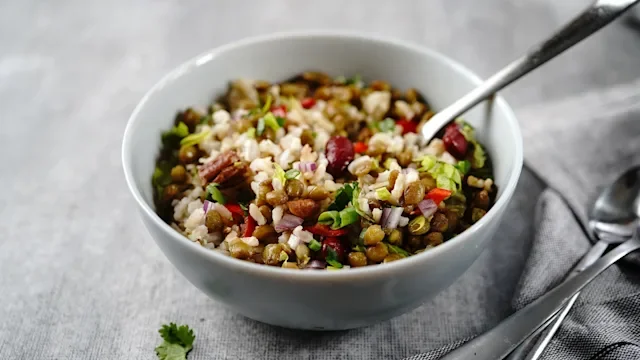Key takeaways:
Coffee enemas have gained popularity recently due to celebrity promotions and internet claims.
There is no evidence to suggest coffee enemas “detox” the body, and they can be dangerous.
If you are experiencing constipation, there are proven treatments such as laxatives and dietary changes.
While they may sound like an internet-born fad, coffee enemas are hardly new.
Clinical use of coffee enemas dates back at least to the mid-1800s. In one case report, a doctor described using the treatment for a child whose survival seemed “hopeless” from accidental poisoning.
People have used coffee enemas as more than detoxifying treatments. The practice has been credited with constipation relief, decreased depression, improved immunity, and a whole lot more.
But what does the science say about coffee enemas? Here, we’ll run through what we actually know about them.
What is a coffee enema?
A coffee enema is a process where a mixture of brewed, caffeinated coffee and water is inserted into a person’s colon through their rectum. The technique has been branded as a type of colon cleanse or a way to “detox” the body.
Where did the idea of using a coffee enema come from?
A German-American doctor named Max Gerson is typically credited for the popularity of coffee enemas as part of his famed Gerson Therapy. Founded in the 1930s, Gerson Therapy uses alternative treatments, including coffee enemas, in an attempt to treat various diseases, including cancer. There’s evidence, however, that people were practicing some version of the enema as far back as ancient times.
While coffee enemas have fallen out of mainstream medical practices, people are still experimenting with them. In 2013, for example, ABC News reported that on a couple that claimed to be “addicted” to coffee enemas. And Gwyneth Paltrow’s website, Goop, recommended a $135 coffee enema as part of a “detox” guide for the new year.
Claim: Coffee enemas relieve constipation, boost immunity, treat cancer, and more
There are about as many unproven claims about the benefits of coffee enemas as there are brands of coffee. Some of the most common hype (mostly based on anecdotes) includes:
“Detoxes” the colon and the body
Relieves constipation
Increases energy
Boosts immunity
Treats depression
Treats chronic pain
Treats yeast overgrowth
Kills intestinal parasites
Treats and prevents cancer and other chronic conditions
Read more like this
Explore these related articles, suggested for readers like you.
What does the science say?
First things first: The idea that cleansing the colon can help “detox” the body does not have support from the scientific community. In fact, the term “detox” itself doesn’t hold much weight or have a reliable definition. If a practice claims to “detox,” it’s best to ask follow-up questions, like “What is it trying to remove?” and “Can’t my body do this on its own?”
And when it comes to the evidence, there isn’t much. One small study looked at using coffee enemas to prepare the colon for colonoscopy, but it was too small to determine any definitive benefits.
To quote one review on colonic cleanses in general, “The practice of colonic cleansing to improve or promote general health is not supported in the published literature and cannot be recommended… ”
As for coffee enemas used as part of Gerson Therapy, no scientific evidence supports their use.
While using a coffee enema may help move things along, healthcare providers typically don’t recommend their use as their risks far outweigh their possible benefits — more on that below.
What are the risks of coffee enemas?
As mentioned above, there are many risks of colon cleanses, including coffee enemas.
The documented risks associated with colon cleansing include:
Dehydration
Proctocolitis (inflammation of the rectum and colon)
Electrolyte imbalance, which can be particularly dangerous if you have underlying medical conditions, such as kidney or heart disease
A tear in the rectum (perforation)
Infection
Vomiting
Abdominal pain
According to the National Cancer Institute, coffee enemas may have caused at least three deaths. And there have been many documented reports of people needing medical attention after performing colon cleanses on their own or paying for colonics at “cleansing centers.”
While no one should use coffee enemas, it’s especially important that children, people who are pregnant or nursing, and people who have undergone colon surgery don’t try the cleansing trend.
What about other types of enemas?
Perhaps you know someone who’s used an enema following the recommendation of their practitioner. Sometimes, specific types of enemas are used to treat or diagnose various gastrointestinal diseases and disorders. These include:
To deliver medication: A provider may use an enema to deliver medication directly to the rectum or part of the large intestine to treat gastrointestinal diseases such as ulcerative colitis.
Diagnostic tests: Sometimes, an enema is used as a helpful part of diagnostics tests. An example is when a safe type of dye is inserted with an enema to get a better look at the colon and rectum.
Constipation: For severe constipation, your healthcare provider may suggest a commercially prepared enema. These can be particularly helpful when a large amount of stool stuck in the rectum is causing constipation.
What are some dependable constipation treatments?
Since people often try coffee enemas to alleviate constipation, it might be helpful to learn some science-backed methods instead.
If you are experiencing constipation, there are plenty of expert-approved options that can help. These include:
Increasing fiber intake
Increasing physical activity
Drinking more water
Drinking coffee — orally, that is
Trying a laxative
So, should I try it?
No. It’s best to stick to sipping coffee. While you may hear anecdotal accounts about coffee enemas’ benefits, there’s no scientific evidence to back them. If you are experiencing constipation or other digestive issues, it’s best to stick to tried and true treatment options.
References
Acosta, R. D., et al. (2009). Clinical effects of colonic cleansing for general health promotion: A systematic review. American Journal of Gastroenterology.
Cassileth, B. (2010). Gerson regimen. Oncology (Williston Park, N.Y.).
Gastroparesis Patient Association for Cures and Treatments. (n.d.). The history of colonic hydrotherapy.
Gerson Institute. (n.d.). The Gerson therapy.
Goop. (n.d.). The beauty & wellness detox guide.
James, S. D. (2013). Couple addicted to coffee enemas, up to four times a day. ABC News.
Kim, E. S., et al. (2014). Coffee enema for preparation for small bowel video capsule endoscopy: A pilot study. Clinical Nutrition Research.
Lee, A. H., et al. (2020). Proctocolitis from coffee enema. American College of Gastroenterology Case Reports Journal.
Mishori, R., et al. (2011). The dangers of colon cleansing: Patients may look to colon cleansing as a way to "enhance their well-being," but in reality they may be doing themselves harm. Journal of Family Practice.
Nakayama, T., et al. (2013). Influence of coffee (Coffea arabica) and galacto-oligosaccharide consumption on intestinal microbiota and the host responses. FEMS Microbiology Letters.
National Cancer Institute. (2015). Gerson therapy (PDQ®)–patient version.
National Cancer Institute. (2016). Gerson therapy (PDQ®)–health professional version.
National Center for Complementary and Integrative Health. (2019). “Detoxes” and “cleanses”: What you need to know.
Shils, M. E., et al. (1982). Unproved dietary claims in the treatment of patients with cancer. Bulletin of the New York Academy of Medicine.
Son, H., et al. (2020). The safety and effectiveness of self-administered coffee enema: A systematic review of case reports. Medicine.
Teekachunhatean, S., et al. (2013). Pharmacokinetics of caffeine following a single administration of coffee enema versus oral coffee consumption in healthy male subjects. International Scholarly Research Notes.
Weitzman, S. (1998). Alternative nutritional cancer therapies. International Journal of Cancer Supplement.
Wooster, D., et al. (1867). Pacific medical journal.

Why trust our experts?





















